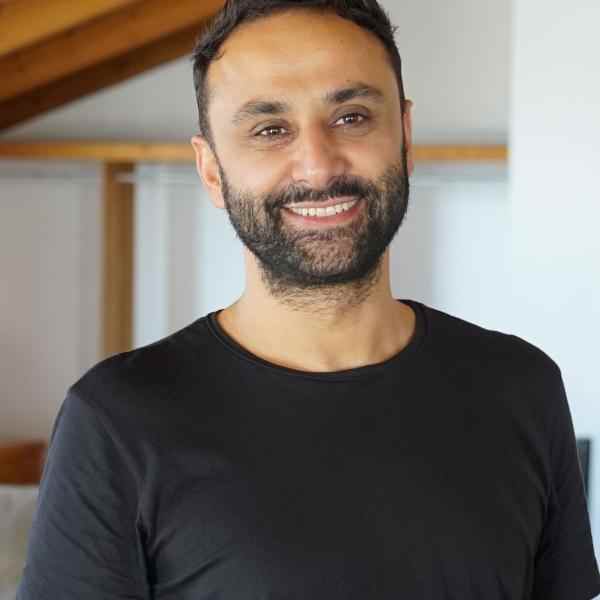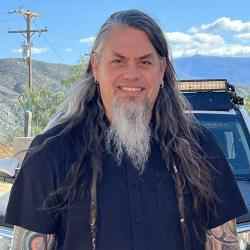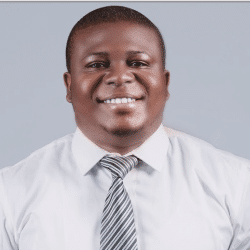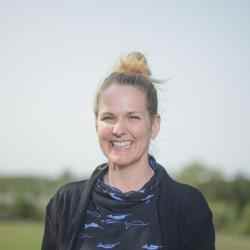Introduction
Burak and Graph Commons develop an open protocol and a decentralized network infrastructure to make civic data interoperable across civil society organizations and projects. In doing so, they are empowering civil society organizations and citizens with a no-cost, user friendly technology to share and make sense of their data in a way that was only available to large institutions before.
The New Idea
Graph Commons is an online movement for mapping, analyzing, and publishing data networks, used especially by journalists, researchers, activists, civil society and cultural organizations around the world. It also serves as a hub of meta-data for anyone on the internet as all the data submitted is always available without requiring a central maintainer, cannot be controlled or censored by any authority, readable and writable by anyone without requiring permission, and its verifiable records cannot be changed or forged.
Today’s issues are complex and cross-sectoral. In order for civics, from an individual to a well established civil society organization, to strive in today’s complex environment, Graph Commons is creating an online platform that enable them the trends of a specific problem better. Being one of the few in the world, the platform provides the individuals with various information gathered by the others and the opportunity to combine these pieces of knowledge in a meaningful manner.
Witnessing the fast-paced online improvements around the world, there is one trend realized by Burak. The power of online platforms and the data collected via those platforms can serve the humanity in many terms, however most of the time the big corporations or the state institutions have the ultimate power on such knowledge, helping them expanding their businesses even further. Having realized the historical moment for this sector, Burak is building a new wave of online knowledge by activating these tools for civics to help them become not only the readers, but also the contributors of complex data sets.
The Problem
Increasingly, a new generation of civil society initiatives build and maintain databases on issues ranging from human rights violations to Internet freedom, from labour crimes to environmental justice. However, although many societal issues are interrelated in their nature, these data generated by separate civil society organizations --what Burak calls civic data -- are rarely used in relation to one another in a systematic way. This lack of interoperability between the work of separate civil society organizations results in the efforts spread too thin, concealment of the common causes underlying different problems, and increased cost of collaboration.
Although online platforms made a fast entrance to the daily life, the knowledge of individuals on how to use the means of these platforms to activate more meaningful civic movements and public information remained insufficient. Technologies to map complex data structures have been in service of military services, government agencies, international companies for decades now, yet the individuals remained powerless in the current status-quo. A handful of mapping and technology experts led the field so far by charging the institutions in exaggerated amounts.
Not seeing the problem from a wider point of view, the masses of individuals tend to become the victims of disinformation, blaming a party or two for a problem where there is a structural issue that needs to be tackled on the sectoral/national level. Falling behind these technological (and expensive) improvements, civil society organizations are also prevented from collaborating more on a data-based manner. This condition leads up to a system where there are multiple organizations conducting various project separately to achieve the same goal.
Benefiting from the recently increased interest in online platforms, Burak is starting an online movement to change the current paradigm for good of all.
The Strategy
Graph Commons is one of the most user-friendly mapping and data sharing platforms of this era, enabling a wide range of users to create their own network maps. By activating many citizens, especially the ones with little knowledge of mapping and data, Burak aims to create a society where all civics are able to better understand and show the systemic problems of a specific field or incident. In doing so, Graph Commons is breaking the elite cycle of systems thinking and turning it into a methodology for all.
The strategy to use this platform as a means of advocacy comes in three pillars. First is the online platform, Graph Commons acts as a free of charge service to the new comers. It enables individuals to create all kinds of maps and visualize all kinds of relationships at one stop. On the second pillar, Burak and the team organize workshops and trainings for civic and academic institutions to increase their knowledge and skills on mapping the data-based facts. These workshops are designed to increase the capacity of the participants in understanding the complex systems. On the third level, Burak builds strategic partnerships to create the network maps that has never been talked about. This acts as the team’s force to push the users to think the unthinkable and map the most grift networks of the day. Burak’s work with other institutions on “The Dispossession Networks” has attracted huge attention in Turkey for showing the relationships behind the fast paced gentrification, central authorities and construction companies of Istanbul . The data has been used effectively by NGOs and press to stop various mega-construction projects. (please visit mulksuzlestirme.org for further information)
As of April 2019, Graph Commons has over 17,000 registered members using the platform for investigative journalism, ecosystem mapping, impact analysis, strategizing, policy analysis, organizational analysis, social and professional network/community management, civic activism, art curating, data research, and archival exploration. Users create in average 20 new graphs per day that contain from 10 to 10,000 data points. Since January 2017, 400,000 unique users have visited the platform. Thanks to Graph Commons, NGOs were able to understand every aspect of the complex problem, thus conduct better communication campaigns than ever. Some of these work can be found on GraphCommons.com.
Burak’s future plans include increasing the amount of users on Graph Commons to enrich the data on the online platform even more. In the long term, for Graph Commons to be fully decentralized, there needs to be many users working on the same topics but providing different data sets for the problems. In the long term, Burak wants Graph Commons to act as a platform that can keep the central authorities accountable. He believes with the right tools and content provided to understand the intra-sectoral systems; the citizens can act against the corruption even more.
The Person
Burak met with computers for the first time when he was 8 years old. Amazed by the machine his father brought home from work, Burak learned coding in no time by using the booklet of the computer. Burak’s interest to computers grew instantly over the years, but it reached to its peak when he first met the internet at the age of 20. He was impressed by the possibility of all networks across the world to be connected to each other on an open platform. He was also shocked by how easy it is to access the information now but yet the systems are still too complex for a regular citizen to use.
A civil engineer by education, Burak pursued rest of his academic career on data structures and became one of the most well-known data scientists of Turkey. His work on data has always been concerned with activating everyone to understand data, to work with data, and to make use of data. During this time, he kept his close connection to the civil society, the lack of connection between the knowledge of these organizations motivated him to create a platform to serve the mapping needs of civic movements. His main goal in life has remained as building connections between various movements to conduct data based advocacy on different issues. Currently, Burak lives in New York acting as an entrepreneur, academician, and artist to expand the use of Graph Commons.




